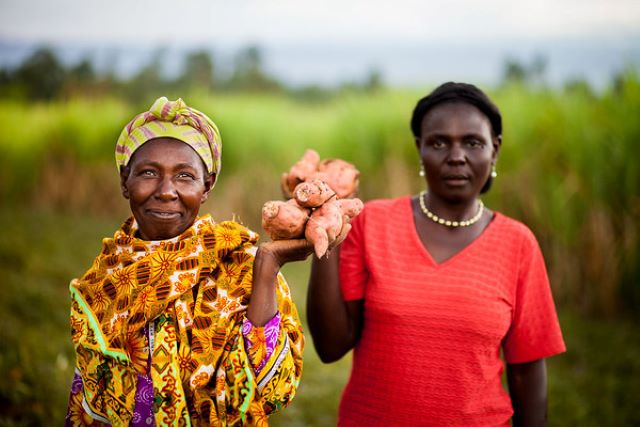Aceli Africa: Strengthening African Agribusinesses
 On November 30, 2020, USAID announced a joint operation with the Swiss Agency for Development and Cooperation and the IKEA Foundation to contribute $30 million to Aceli Africa to help bridge the financing gap experienced by many African agribusinesses. The grant is estimated to have a tremendous impact and will unlock $700 million in financing for up to 750 African agribusinesses in Tanzania, Kenya, Rwanda and Uganda.
On November 30, 2020, USAID announced a joint operation with the Swiss Agency for Development and Cooperation and the IKEA Foundation to contribute $30 million to Aceli Africa to help bridge the financing gap experienced by many African agribusinesses. The grant is estimated to have a tremendous impact and will unlock $700 million in financing for up to 750 African agribusinesses in Tanzania, Kenya, Rwanda and Uganda.
Agri-SMEs Lack Financing
Much of Aceli Africa’s work focuses on a data-driven approach to incentivizing financial institutions to provide loans for small and medium-sized African agribusinesses or “agri-SMEs”, as Aceli Africa calls them.
According to Aceli Africa’s research, agri-SMEs represent a golden opportunity to solve hunger and poverty throughout Africa and help fulfill key U.N. Sustainable Development Goals (SDGs), such as gender equality and climate action.
This is because smallholder farmers consist of both men and women and provide direct access to food sources that are responsibly raised in accordance with the needs of the local environment. Furthermore, the expansion of the agricultural sector in Africa is two to three times more effective in eliminating poverty than growth in any other sector.
Despite the great potential of African smallholder farms, banks are largely unwilling to loan them much-needed financing to power additional growth. Banks do not have the risk appetite for small farms in Africa due to price volatility, the seasonality of farming, pest invasions and a weak regulatory environment.
The result of this is an investment shortfall of $65 billion per year for agri-SMEs in Africa. Initiatives focused on microfinancing do not provide enough financial injection for agri-SMEs, which are larger than the microenterprises that are the usual recipients of microloans. Agri-SMEs are thus left out of financing. However, the work of Aceli Africa aims to change these circumstances.
Aceli Africa Incentivizes Banks to Loan to Agri-SMEs
To bridge this gap in financing, Aceli Africa partners with numerous organizations such as USAID, the IKEA Foundation, Feed the Future and the International Growth Center to incentivize banks to loan and provide technical assistance to agri-SMEs.
This is where the aforementioned $30 million contribution has the potential to positively impact agriculture and African agribusinesses. One of the incentive programs that Aceli Africa employs is to cover the losses of the first loan that a financial institution gives to an African agri-SME.
This works by depositing 2-8% of the loan’s value in a reserve account that the lender can access when losses are experienced. This boosts risk appetite among lenders and makes banks and other institutions more willing to invest in agri-SMEs in Africa.
Aceli Africa also provides technical assistance for financial management for African agri-SMEs through online tools and other in-person approaches to help smallholder farmers optimize growth using the loans they receive. These approaches have the potential to put U.S. taxpayer dollars to effective use by addressing poverty and hunger abroad.
United States Outreach is Key in Combatting Poverty
USAID’s decision to partner with the Swiss Agency for Development and Cooperation and the IKEA Foundation to contribute to the work of Aceli Africa symbolizes the value and power of international partnership in the fight against global poverty. When the United States decides to lead on an issue, the rest of the world follows. Key international partnerships are essential for the United States to take the lead and garner international support to address key global issues.
– John Andrikos
Photo: Flickr
